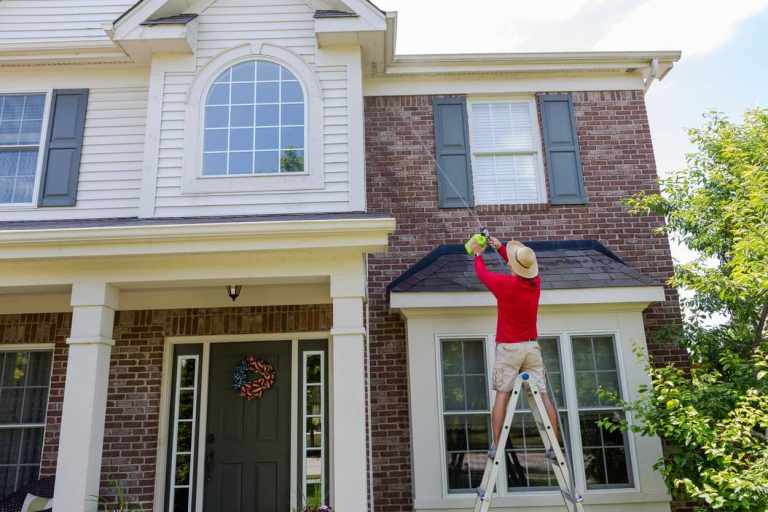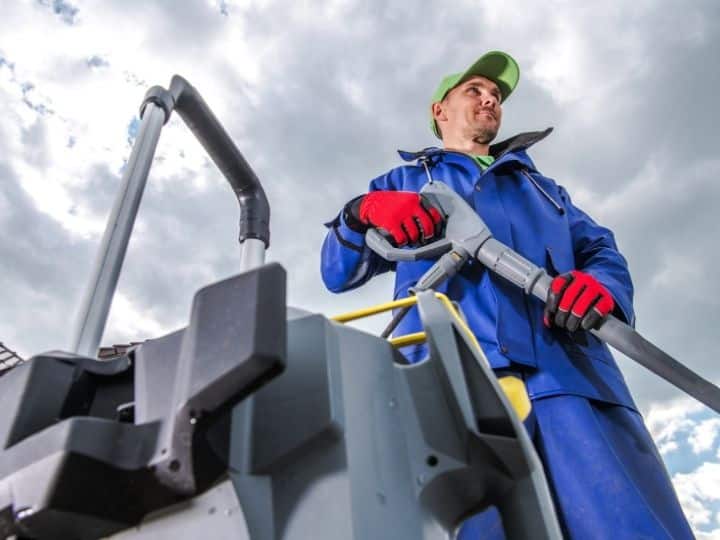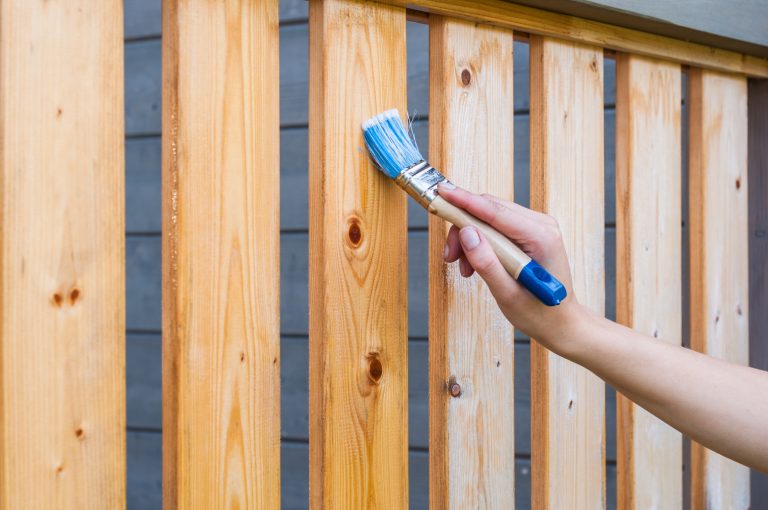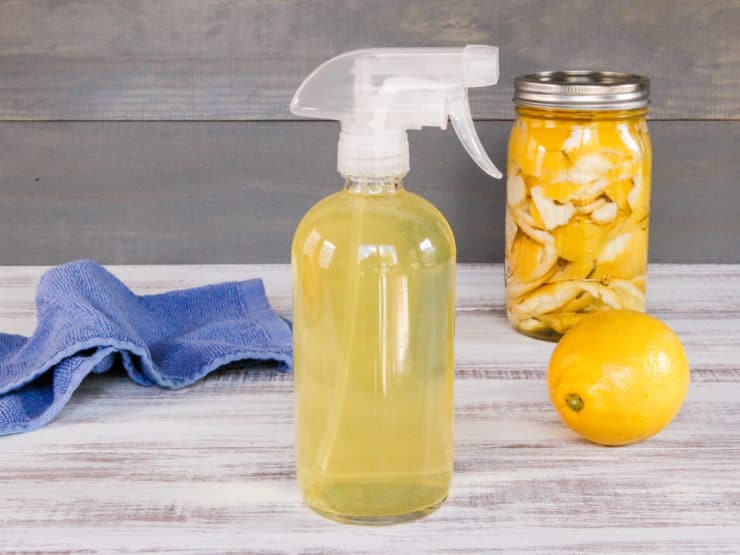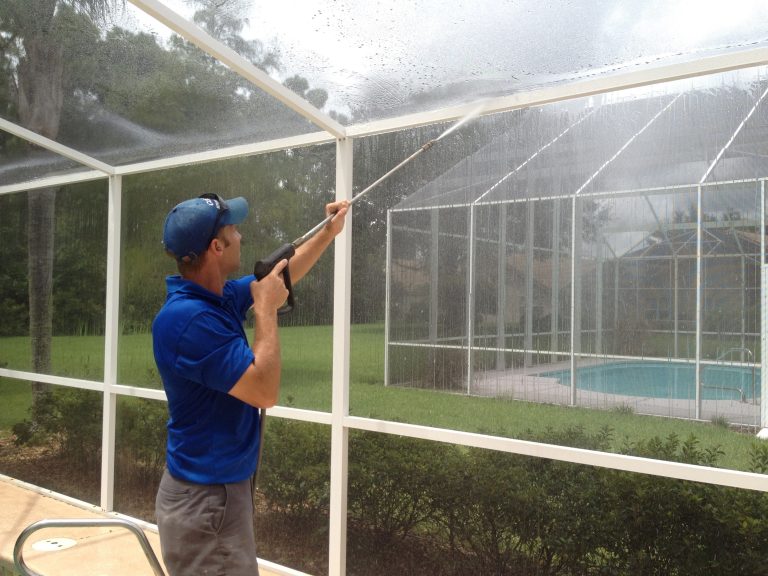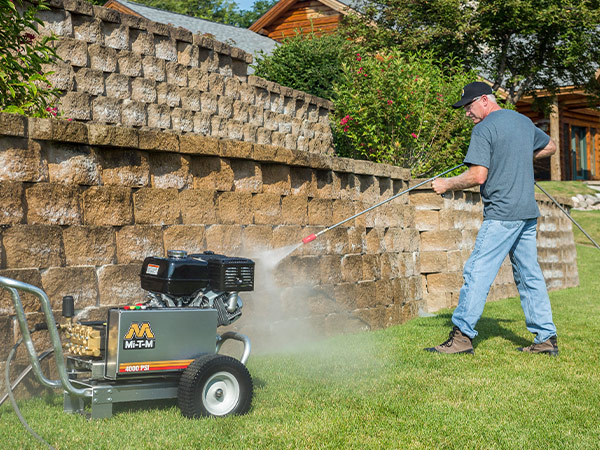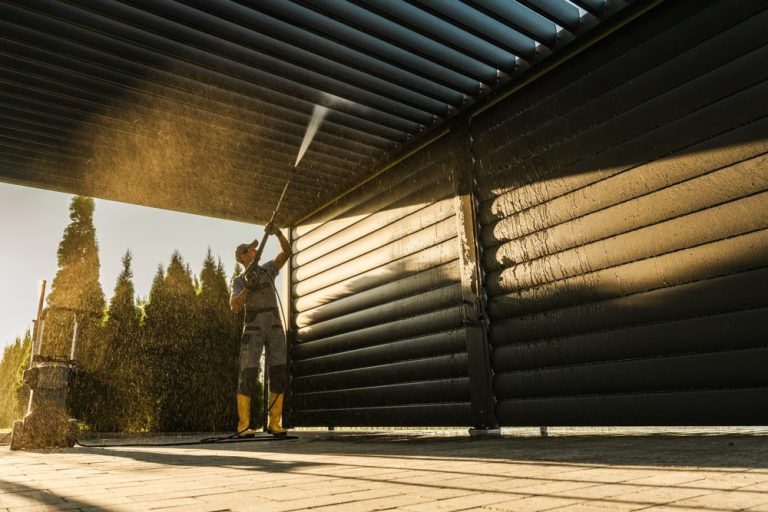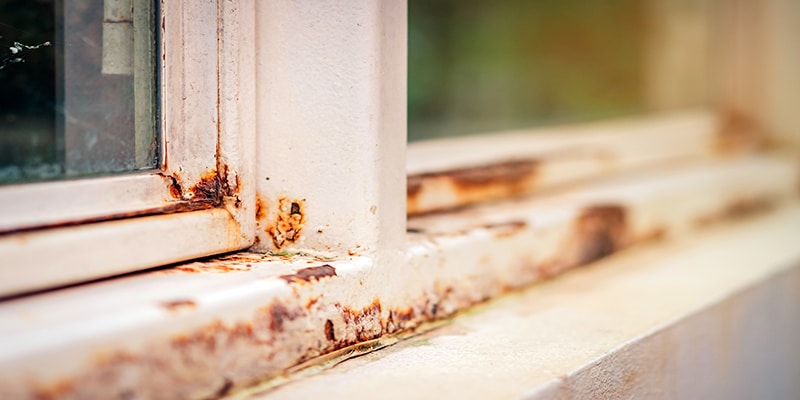
Pressure washing is well known for blasting away dirt, mildew, and grime — but what about the tough stuff? 🧐 We’re talking about oil stains, rust marks, and peeling or old paint. Can a pressure washing service really handle these stubborn surface invaders?
The short answer is: yes — in many cases. But it’s not always as simple as pointing a pressure washer at a stain and watching it disappear. In this article, we’ll explore how effective pressure washing is for oil, rust, and paint, what methods are used, and what you need to know before hiring a pro. 💦🧼
🛢️ Oil Stains: The Greasy Nuisance
Oil stains are common on driveways, parking pads, and garages — especially if you park leaky vehicles or use these areas for maintenance work.
🔍 Can Pressure Washing Remove Oil Stains?
✅ Yes — but only with the right technique.
Pressure alone rarely lifts oil. A professional company will first apply degreasers or detergents specifically formulated to break down petroleum-based residues. Then, they’ll use hot water or steam pressure to lift and flush the stain out of the porous surface.
🧴 Common Oil-Stain Treatments:
- Biodegradable degreasers
- Heated water pressure (often 180°F or more)
- Surface scrubbers for better agitation
Concrete is porous, so deeper stains may not come out completely, but a professional can significantly improve the appearance — especially with multiple treatments. 🧪
⛓️ Rust Stains: The Stubborn Orange Eyesore
Rust stains often come from:
- Irrigation systems
- Metal furniture or fixtures
- Battery acid spills
- Fertilizer runoff
They tend to leave orange or reddish marks on concrete, siding, and even stucco.
🔍 Can Pressure Washing Remove Rust?
💬 Not with water pressure alone. Rust is a chemical stain, so most pressure washers combine physical cleaning with specialized rust removers that react with and dissolve iron oxide.
Professional pressure washing services may use:
- Oxalic acid or citrus-based rust removers
- Low-pressure rinsing to avoid etching surfaces
- Targeted application followed by scrub + rinse
⚠️ Caution: Some rust removers are corrosive — a trained pro knows which products are safe for concrete vs. painted siding vs. pavers.
🎨 Paint: Peeling, Chipping, or Old Coatings
Pressure washing can remove paint — but whether it should depends on your goals.
🎯 When to Remove Paint with Pressure Washing:
- Prepping wood or concrete for repainting
- Stripping graffiti or unwanted markings
- Removing loose, flaking coatings
🧨 When It’s a Bad Idea:
- On fragile or aged surfaces (wood siding, shingles)
- Near lead-based paint (can release toxic dust)
- Without proper containment (can damage landscaping)
Pros will use:
- Turbo or rotating nozzles for aggressive cleaning
- 3,000+ PSI commercial washers
- Controlled spraying to avoid gouging surfaces
Pressure washing can strip latex, acrylic, or even oil-based paint, especially on wood or concrete — but it requires skill to do so without damaging the underlying material. 🎯
🧼 What Surfaces Respond Best?
| Surface Type | Oil Stains | Rust Stains | Paint Removal |
|---|---|---|---|
| Concrete driveway | ✅ High | ✅ High | ✅ Moderate–High |
| Asphalt driveway | ⚠️ Caution | ⚠️ Caution | ❌ Not Recommended |
| Brick/pavers | ✅ Moderate | ✅ Moderate | ⚠️ Risk of chipping |
| Stucco or siding | ❌ Limited | ⚠️ Light | ⚠️ Very risky |
| Wood deck/fence | ⚠️ Light | ❌ Rare | ✅ Moderate |
Professionals know which surfaces can handle aggressive cleaning and which need soft washing or chemical pretreatment. 💡
🧰 Equipment Pros Use for Tough Stains
Professional pressure washing companies don’t just show up with a hose and hope for the best. They use specialized tools like:
- Hot water pressure washers (vs. cold water home units)
- Surface cleaners for even application
- Chemical sprayers for stain-specific agents
- High-PSI machines (3,000–4,000+ PSI)
- Turbo nozzles for stripping and chipping
This gear is far more powerful and effective than consumer-grade washers. Renting a DIY machine usually won’t cut it on tough stains. 🚫🛠️
🧾 What to Ask Your Service Provider
Before hiring someone to remove a tough stain or old paint, ask:
- “Have you treated oil/rust/paint on this surface type before?”
- “What chemical treatments do you use?”
- “Can I see before-and-after photos of similar jobs?”
- “Will this process damage nearby landscaping or finishes?”
- “Do you offer a satisfaction guarantee if stains remain?”
Good companies will walk you through expectations clearly — and they’ll let you know when total removal may not be realistic. ✅📋
💰 How Much Does It Cost?
Removing oil, rust, or paint often falls into “specialty services,” so it may cost more than basic pressure washing.
Typical pricing:
- Oil stain removal: $75–$250 depending on area size
- Rust treatment: $100–$300
- Paint removal (e.g. deck prep): $1.00–$3.00 per sq. ft
- Graffiti removal: $100–$500 depending on surface and urgency
Some companies offer bundled services if you’re also washing the home, driveway, or patio. 💵
🧼 Final Thoughts
Pressure washing is a powerful tool — and in the hands of a trained pro, it can dramatically reduce or eliminate even the most stubborn stains. From grease and rust to unwanted paint, professional services combine chemistry, technique, and the right tools to get the job done safely. 🧽🛠️
While no method guarantees 100% stain removal every time, experienced contractors will be honest about what’s possible — and give your surfaces the best shot at looking like new.
